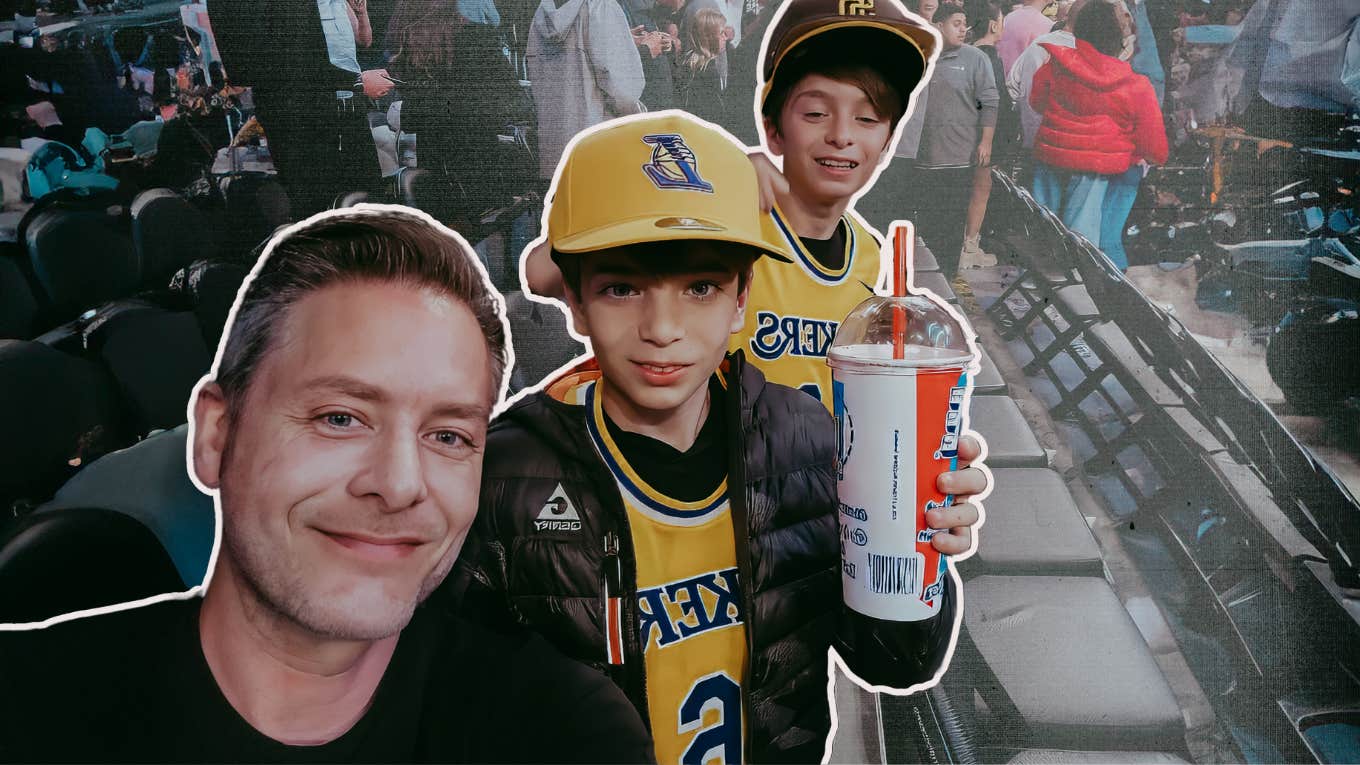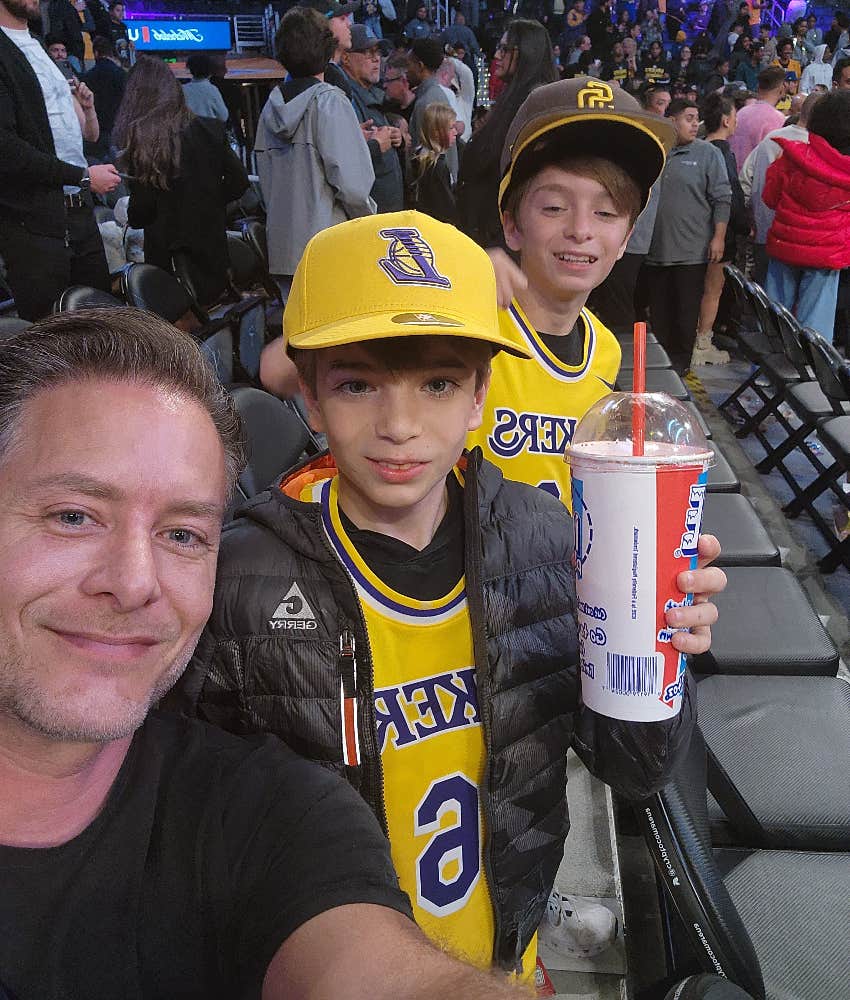It Took Years To Get The Ultra-Rare Diagnosis That Rocked My World
A father shares symptoms to be aware of for an ultra-rare form of inherited high cholesterol.
 Courtesy Of Author
Courtesy Of Author When I think about who I was growing up and what brought me joy, I think about the feeling of the waves under my board when I'm surfing. I think about fixing classic cars with my dad. And now, I think about spending time with my sons on warm days at the beach.
Looking back, my journey to being a dad to two wonderful sons was very nearly cut short before it even began when I was diagnosed with homozygous familial hypercholesterolemia (HoFH), an ultra-rare inherited cholesterol condition that affects approximately 1,300 people in the U.S. It's the most severe form of familial hypercholesterolemia — a defect in how the body clears low-density lipoprotein cholesterol [LDL cholesterol], referred to as “bad” cholesterol. People with HoFH are at risk for premature atherosclerotic disease and cardiac events, even in their teenage years.
I’d always been active growing up, but when I was around 16, I started experiencing asthma symptoms. I tried pushing through them but they only got worse. It felt like the harder I trained, the weaker I got.
By the time I was 17, I couldn’t even run a mile. Asthma medication wasn’t helping. I explained to my doctor that it felt like someone had a hand over my mouth and I couldn’t breathe.
Fast-forward to age 19, when I began to develop lumps on my joints. At first, they were just like small bumps, but by the time I was 21, it looked like I had lumps the size of golf balls on my knuckles. My doctor did a biopsy of the lumps that, fortunately, came back negative for cancer. He said that they were likely nothing to worry about and that sometimes people develop fatty buildups. He removed the lumps and I went on with my life.
In my free time, though, I found that I couldn’t enjoy the activities I had done when I was younger. I was an avid surfer, but it got to the point where I would paddle out and then panic that I couldn’t paddle back in. I was working hard to get better at the activities I loved, but instead of getting better, all those activities were becoming harder for me to do.
As the years went on, though, I found myself getting weaker and weaker, and things took a turn when I was 27. I was at work and I was suddenly overcome with the feeling that I was going to pass out. I thought maybe I was just exhausted and needed to take a minute to relax. After a few minutes, the symptoms went away and I continued with my day.
The next evening, I started to feel like I had terrible heartburn. I bought some medication to relieve my symptoms, but I still didn’t feel any better after a few hours, so I took more medication. After my symptoms persisted, I saw a warning label on the bottle. It had a list of symptoms that matched mine and said to see a doctor. So, I decided to go to urgent care at two in the morning.
They ran a series of tests, including a blood test. After my bloodwork came back, they showed that my LDL cholesterol was in the 900s and the doctors realized that I had experienced a heart attack.
Most people are aware of high cholesterol. But one thing many folks don’t know is that some people can actually inherit it by way of a rare, genetic disorder — a condition that can cause your bad cholesterol to be more than four times the healthy level.
Here’s where things got interesting … and scary. The on-call cardiologist asked me unnervingly specific questions about symptoms, like whether had I developed any fatty lumps on my joints. I realized everything he was asking about was spot-on.
The doctor explained to me that I likely had HoFH, a condition that most physicians had never even come across. Eleven years since I first experienced symptoms, I finally had an answer.
With a diagnosis in hand, the doctors rushed me into surgery and put three stents in my heart. Little did I know at the time, these would be the first of many stents. Between the ages of 27 and 32, I received a total of 14 stents. It felt like my heart was being held up by scaffolding.
When I turned 36, I found myself back in the emergency room for the same symptoms I had experienced nearly 10 years earlier. There wasn’t any room for more stents in my heart and my only option was triple bypass surgery. During that time, there was a moment when I flatlined. I don’t remember much about it, of course, but let me tell you, it puts things into perspective.
Emotionally, it’s been hectic with the guilt of knowing that I could potentially pass HoFH on to my children because I want them to have healthy, normal lives. While my younger son doesn’t have it, my fears were realized when my oldest son was diagnosed with the condition at age 5. Fortunately, by testing him early, we were able to get in front of it and I was able to guide my son’s care with the knowledge I had from my diagnosis. I’m so grateful my son won’t have to face the same unknowns that I did.
Over the years, I’ve tried a variety of different treatments. I feel lucky to say that my perspective has changed more recently thanks to the continued development of therapies. When I look back at my journey from diagnosis to treatment, I feel grateful. I look at my son and know that what I’ve been through will make things better for him.
 Photo by author
Photo by author
And now, when I think about the things that bring me joy, the things that make me who I am today, I think about weekends with my sons swimming in the waves at the beach. I think about the sound of their laughter as we drive over sand dunes. But most importantly, I think about all the people — even if it’s just one, even if it’s just my son — that I can help with my story.
Peter Martini is a father to two sons and president of a software company. He is living with homozygous familial hypercholesterolemia (HoFH), an ultra-rare inherited disease that causes dangerously high levels of LDL cholesterol. He is an advocate for others who are living with HoFH, including his son who was diagnosed at age five, and has participated in programs raising awareness for HoFH as a paid spokesperson.

